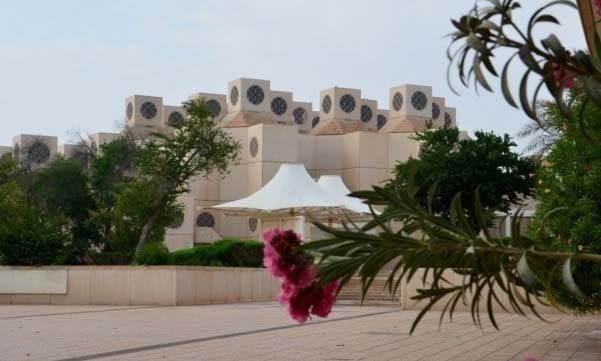
In an effort to promote the use of Arabic more widely in Qatar, the state Cabinet yesterday approved a draft law that would require all ministries, official organizations and public schools and universities to use the language in all their communications.
Only a few details of the provisions of the new law on the “protection of the Arabic language” have so far been released.
However when it becomes law, QNA reported that it would affect all ministries, official institutions, municipalities and public educational institutions at all levels of education, implying government-run kindergartens, schools and universities.
It would require them to use Arabic for instructions, documents, contracts, transactions, correspondence, labels, programs, publications, advertisements and “all that comes out of their systems”, QNA added.
‘Teach Arabic’
It also suggests that Qatar University (QU) could be affected by the new rules, adding:
“National public universities and institutions of higher education, overseen by the government, are also committed to teach the Arabic language in all science and knowledge.”
Four years ago, the then-Supreme Education Council issued a decision that the language of instruction for classes in law, international affairs, media and business administration must switch from English to Arabic starting in September 2012.

Degrees in science, engineering, pharmacy and medicine continued to be taught in English.
It is not clear if this draft law would require a switch of language in which these classes are taught, or if students studying these subjects would be required to take Arabic classes as part of their degree program.
A change in language instruction would significantly affect students and faculty at the university, many of whom are international.
When the previous language change took place, it raised issues about a lack of course materials in Arabic and potential problems over international rankings, collaboration and accreditation.
QU was unable to comment to Doha News at the time of publication.
Loss of identity
The new draft law comes amid a wider concern that many younger people particularly do not have a strong enough grasp of Modern Standard Arabic (fusha).
Qatar’s former first lady Sheikha Moza bint Nasser has repeatedly raised this issue, most recently last month when she equated a loss of language to the erosion of cultural identity.

Speaking at the second edition of the Renaissance of Arabic Language Forum, held under the theme “Linguistic Upbringing of The Arab Child,” she said that speaking Modern Standard Arabic had become a foreign language for many Arabs.
She said that Arabs had two choices: either surrender to complete globalization, or find a way to live in harmony with it while maintaining “our language and identity.”
According to the forum’s website, many children prefer to use local Arabic dialects or speak a foreign language altogether.
Non-Arabic video games, social media and the customs of children being brought up by domestic staff who don’t speak Arabic have all previously been blamed as part of the problem.
Simplifying the Arabic language in school curriculums and requiring local television programs to use Modern Standard Arabic were among Sheikha Moza’s proposals to address the problem.
There have been other attempts to strengthen the use and presence of Arabic in the country.
In 2012, the Emir approved a decree stating that billboards should be primarily in Arabic, although foreign languages can be included as supplementary text.
Those who violate the law would have their advertisements removed “by force” and could face up to QR20,000 in fines.
The same year, an online survey by Arabic newspaper Al Raya found that 90 percent of respondents said they felt Arabic was not being used properly at public institutions, schools and universities.
Some 85 percent of the respondents say the institutions have failed to adopt Arabic as the official language, while another 90 percent have said organisations don’t use Arabic for communication, The Peninsula reported at the time.
Arabic professor Nazmi Al Jamal was quoted as saying:
“In any country people are proud of their language. But sadly in the GCC countries people are more dedicated to English, especially as a language of communication. There should be a procedure adopted to control the spread of English as a communication language in the region.”
Thoughts?







